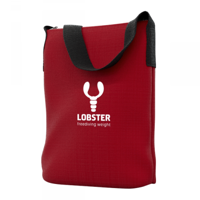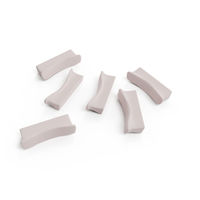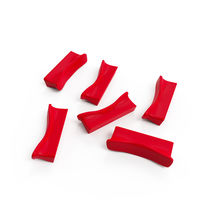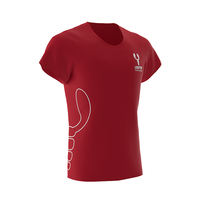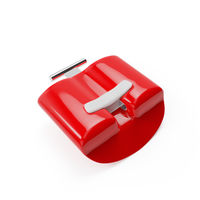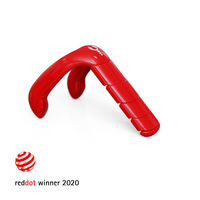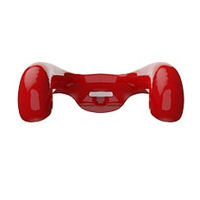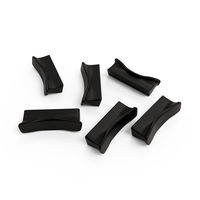Certification
While this does not have to be a requirement, this is certainly a plus. Certified freedivers have theory knowledge under their belt, practiced rescue scenarios, and know-how to progress safely in their training. There are freedivers out there who may have not taken a course, but trained with experienced, certified freedivers and who have studied theory on their own and take safety seriously, but this is unfortunately not the norm. One of the first questions you should ask a potential new freediving buddy is if they are certified, and if so, with what agency and which level.
Safety Skill Level
It will be in both you and your buddy’s best interests if both of you are at a comfortable level to safety each other at the depth the other requires. This means that if you are planning to go to 50m (164ft) and your buddy can only go to 20m (65ft), you may run into some trouble when you require deeper safety, such as requesting safety from 15-20m (49-65ft). There is absolutely no shame in not being able to safety someone at depths deeper than you are comfortable with, and it is important that you be honest and inform each other of your limits before you go diving.
I personally remember a time when I was diving in Dahab with my partner and a third person who was an 80m (262ft) diver. The 80m diver required deep safety, and my PB (personal best) at the time was 25m (82m). Luckily, my partner could perform deep safety confidently, so I became the second safety at 10m (32ft). So if you and your buddy’s levels greatly differ, the deeper one can adjust their dives to depths that are safe for the both of you, and save the deeper dives for other training sessions.
Level Of Seriousness
Safetying someone while freediving is a serious business. If you are doing your relaxation breathing at the surface before your dive and hear your buddy talking with someone else or going off to chase after a fish, how can you completely relax and trust that person to be in 100% good condition to safety you if you run into trouble? That is why it is critical to find someone who makes safety a top priority when freediving, and takes your dives as seriously as they take their own. Find a buddy that refuses to dive without a lanyard, does their relaxation breathing alongside your own when you dive, observes you effectively at the surface, and is willing to plan out and practice safety scenarios regularly.

Reliability
There is nothing more annoying than setting a specific time and date aside for a session, having all of your equipment ready, getting in the mindset to train, and then have the other person cancel plans. Even if they keep the date but are constantly late, if you are fasting before diving, this can be infuriating, which may impact your training. If someone is consistently unreliable, it may also make you wonder if you can really rely on them if you have a BO (blackout) or LMC (loss of motor control). That is why it is important to choose someone reliable with time, who you can depend on in and out of the water.
Knowledge Of The Buoy
A big plus for depth training is finding someone who knows how the buoy works, is familiar with knots, can properly coil the rope and can assist you when adjusting, setting up, or pulling up the line. If they do not have background knowledge on all of this already, take the opportunity to teach them! If you are the one that does not have this knowledge, it might feel difficult or embarrassing to ask someone to teach you, but put aside your pride and ask for help! Teamwork can make your sessions go smoothly and avoid extra time wasted. There is nothing sweeter than pulling up the line, exhausted after a particularly grueling training session, only to realize that your buddy coiled the line for you already and is ready to put it in the buoy while you rest your weary arms.
Positive Attitude
A positive attitude is key to freediving training. Early turns or coming up too soon in the pool can be particularly frustrating and leave you feeling downtrodden and extremely negative, which will most likely impact your next dive. Having a positive buddy (and being that person yourself) can keep your spirits up when you are having a bad day, and provide motivation for you to continue to improve, even when you feel like a failure. No one wants to dive with someone who brings their own problems into training sessions and dampens everyone else’s mood, so make sure to look for a buddy with a good attitude.
Final thoughts
The perfect buddy can be hard to find, but is integral to a good training session. It is especially enjoyable training with the same person over and over again, someone you really trust, so that you become familiar with each other’s habits, methods, skill level, etc. Personally, I save particularly deep dives, or my PB dives, for when my partner or fellow instructor is my buddy, just so I can feel completely relaxed and at my most comfortable level. Searching for the perfect dive buddy can be similar to searching for a life partner; difficult, but so absolutely worth the struggle in the end when you finally find it!

(c) www.deeperblue.com
